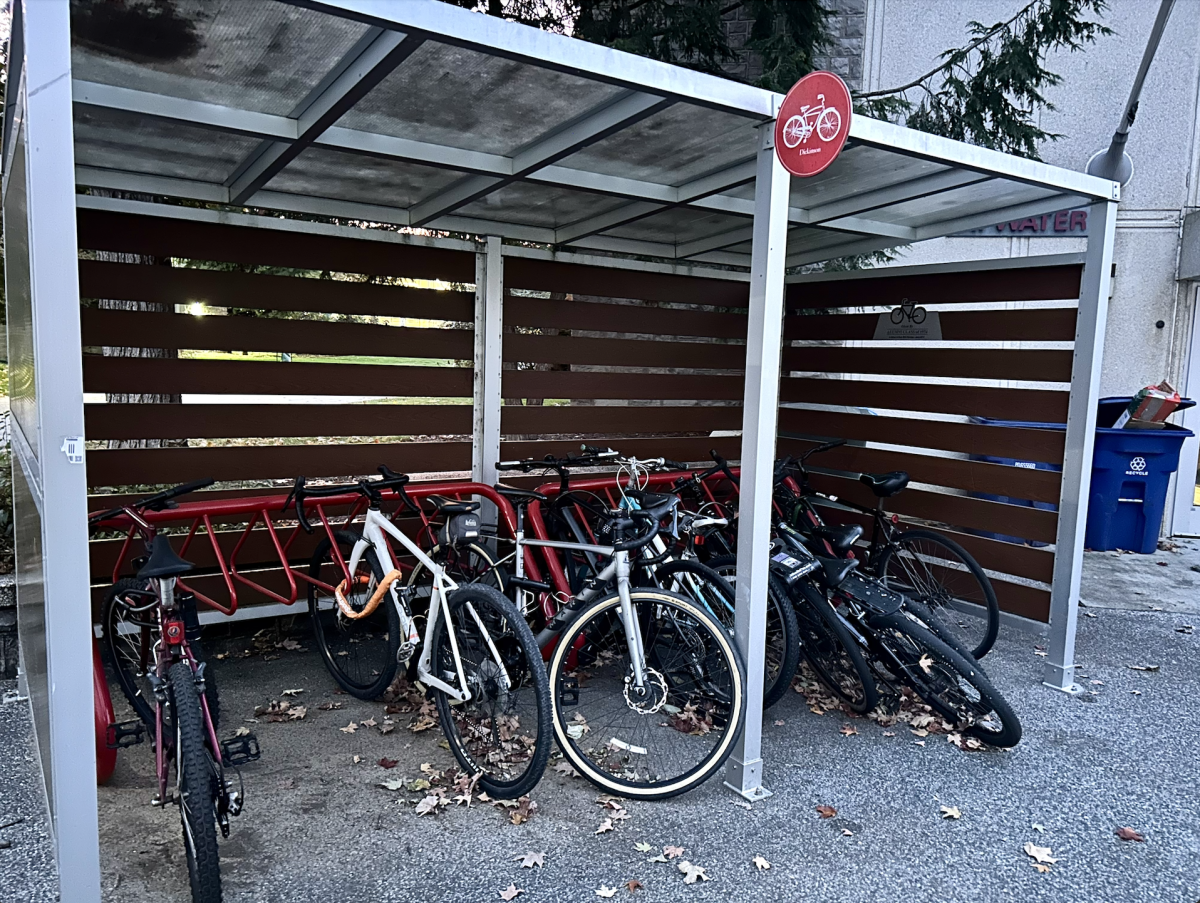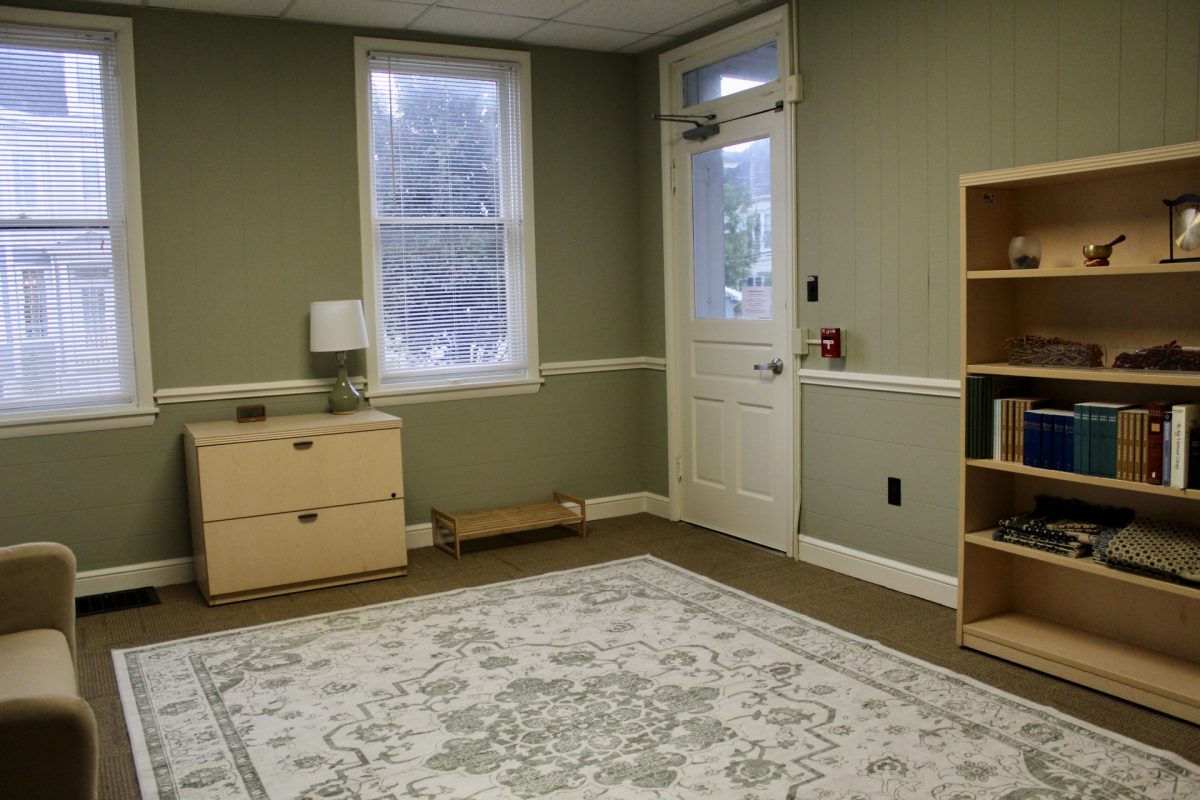The Kade Center at Dickinson College was founded in 1994 and supports German educational programming on campus. The Center’s Writer-in-Residence program brings a German or Austrian writer to campus every few years to partake in readings of their work and present in high-level courses while developing new material. Since its creation, the Center has hosted 18 authors. Before this year, with the arrival of Marie Gamillscheg, there had not been a visiting author since 2019 because of the COVID-19 pandemic.
Austrian-born Gamillscheg, who currently lives in Berlin, is a freelance writer and translator. She has authored two books: “Alles Was Gläntz” and “Aufruhr der Meeres Tiere.” She wrote “Alles Was Gläntz,” her debut novel, when she was 25. The book was awarded the Debut Austrian Book Prize. During her time at Dickinson, Gamillscheg has spoken with classes, attended the German Department’s weekly table, and has done public readings of her works.
On April 2, the German Department hosted a public reading of the first chapter of “Alles Was Gläntz,” a literary essay on the upcoming German federal elections and some recent, unfinished works from Gamillscheg’s time in Carlisle. While Gamillscheg read her work aloud in German, there were English translations provided on a screen behind her for attendees.
“Alles Was Gläntz” is centered on a depressed town that is falling in on itself after over-mining. While a work of fiction, the story is based on a similarly depressed Austrian town. Her literary essay addresses fear and her experience living in Leipzig preceding the upcoming federal German elections. Her essay weaves in fictional aspects and discusses the necessity of fear to live and to take action.
In her self-described “notes” from her time in Carlisle, Gamillscheg addressed the changing of one’s home and workspace and the process of adapting to cultural differences. Moving to Carlisle marked Gamillscheg’s first time being in the United States. In “The Door,” she writes about her first days in the Kade house and the process of finding a workspace in this new environment. In “The Shades,” she discusses the cultural differences between American and German media when it comes to the visual of someone looking through the window shades. She commented that Americans have the perception that they can choose how much light and visibility they want, which they believe is not the case for Europeans.
Gamillscheg also took questions from audience members. When asked how her approaches to journalistic and literary writing differ, she stated that when writing as a journalist she wants to have one answer, whereas she wants many in her literature. Later, she stated that there is political power in both literature and journalism. However, she stated that literature’s power comes from not being political and by fostering an exchange of ideas which creates empathy. While she said her experience is in educational journalism, she would like to write more literary essays in the future.




